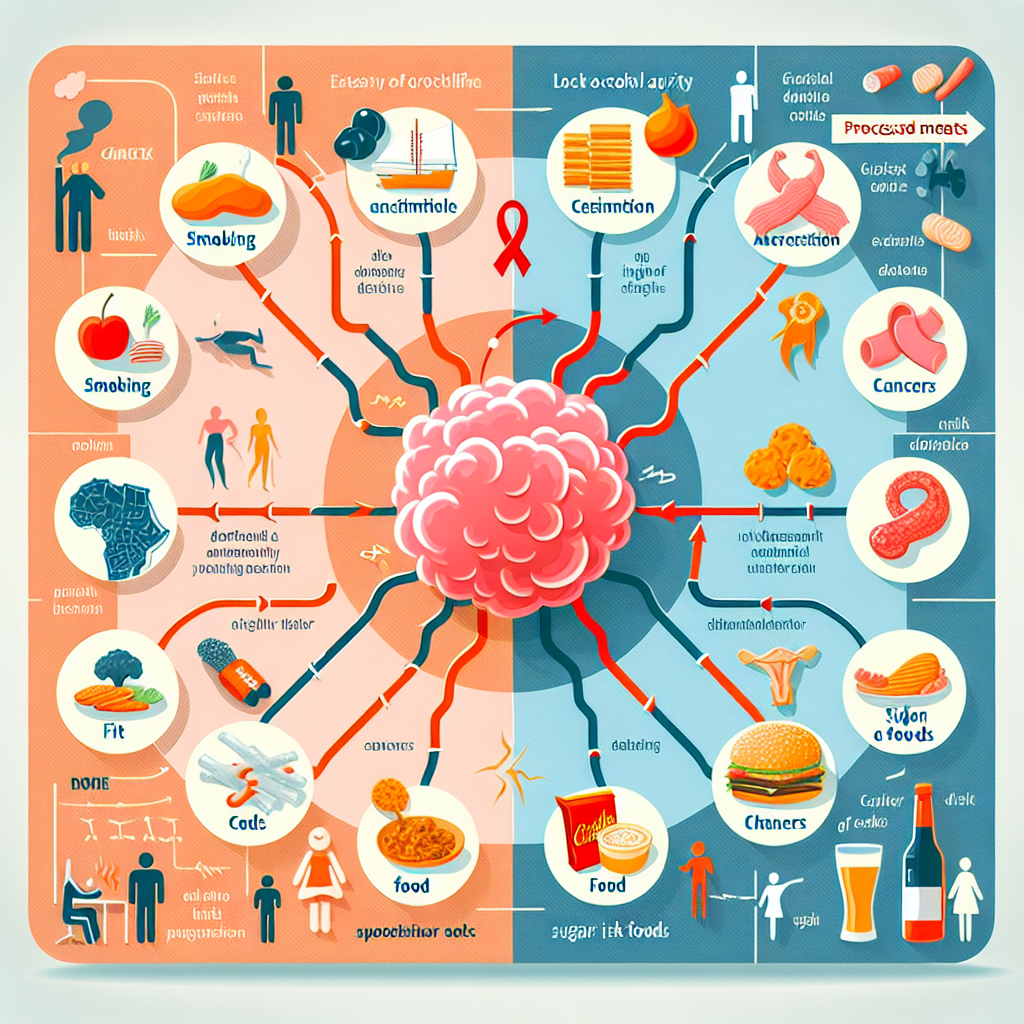Food and Lifestyle Triggers of Diabetes and How to Stay Healthy
1. Understanding Diabetes and Its Types
Diabetes is a chronic disease that occurs when the blood sugar levels in the body become too high. There are primarily two types of diabetes: Type 1 and Type 2. Type 1 diabetes is an autoimmune condition where the body doesn’t produce insulin, while Type 2 diabetes, which is the more common form, occurs when the body becomes resistant to insulin or when the pancreas fails to produce enough insulin. According to the International Diabetes Federation, as of 2021, approximately 537 million adults worldwide were living with diabetes, and this number is expected to rise to 643 million by 2030.
2. The Role of Diet in Diabetes Management
Diet plays a crucial role in managing blood glucose levels. Consuming a balanced diet rich in whole foods can help regulate blood sugar levels and maintain a healthy weight. Foods high in fiber such as whole grains, fruits, and vegetables can slow down glucose absorption, leading to better blood sugar control. Studies show that a high-fiber diet can reduce the risk of Type 2 diabetes by 30%. It’s important to focus on low glycemic index foods that do not cause spikes in blood sugar.
3. Excess Sugar and Its Impact
One of the largest contributors to diabetes is excessive sugar intake. The World Health Organization recommends that no more than 10% of daily caloric intake should come from added sugars. However, many people consume much more than this. In fact, data from the National Health and Nutrition Examination Survey indicates that the average American consumes about 17 teaspoons of added sugar daily. High sugar intake can lead to insulin resistance and weight gain, both of which are significant risk factors for developing Type 2 diabetes.
4. The Danger of Processed Foods
Processed foods can also act as major lifestyle triggers for diabetes. These foods are often high in unhealthy fats, sugars, and sodium, lacking essential nutrients. Research suggests that frequent consumption of ultraprocessed foods increases the risk of developing diabetes by 30%. To minimize risk, opt for whole, unprocessed foods such as fresh fruits, vegetables, whole grains, lean meats, and legumes.
5. Importance of Regular Physical Activity
Physical activity is another critical factor in diabetes management. Regular exercise improves insulin sensitivity and aids weight loss, both essential for managing blood glucose levels. The Centers for Disease Control and Prevention recommends that adults engage in at least 150 minutes of moderate-intensity aerobic activity each week. Just 30 minutes of brisk walking five times a week can significantly decrease the risk of Type 2 diabetes and improve overall health.
6. Hydration and Its Effects on Blood Sugar
Water plays a vital role in maintaining optimal health and managing diabetes. Staying properly hydrated can positively affect insulin sensitivity and help control blood sugar levels. Dehydration can lead to increased blood sugar levels and complications related to diabetes. A study published in the Journal of Clinical Endocrinology & Metabolism found that increased water intake improves glycemic control in patients with Type 2 diabetes. Aim to drink at least eight 8-ounce glasses of water daily, and even more if you are active.
7. The Impact of Stress on Diabetes
Stress can also be a significant contributor to blood sugar fluctuations. When stressed, the body releases hormones like cortisol and adrenaline, which can increase blood sugar levels. Chronic stress may lead to unhealthy coping mechanisms, such as overeating or turning to sugar-rich comfort foods. According to a study from the American Diabetes Association, individuals experiencing high levels of stress were 30% more likely to develop Type 2 diabetes. Stress-management techniques such as mindfulness, yoga, and meditation can help control stress levels and improve diabetes management.
8. Sleep Quality and Diabetes Connection
Quality sleep is crucial for overall health and has a direct impact on blood sugar regulation. Poor sleep can lead to insulin resistance and may cause a 20-30% increase in the risk of developing Type 2 diabetes. The American Academy of Sleep Medicine recommends that adults aim for 7 or more hours of sleep each night. Insufficient sleep disrupts hormone functions, ultimately affecting hunger and satiety. Prioritizing good sleep hygiene, such as maintaining a consistent sleep schedule and creating a restful sleep environment, is essential.
9. Regular Monitoring of Blood Sugar Levels
For those living with diabetes, regularly monitoring blood sugar levels is vital for effective management. This practice helps to ensure that glucose levels stay within the target range, allowing for timely interventions if needed. Many individuals use continuous glucose monitors or periodic blood tests to keep track of their levels. The American Diabetes Association recommends keeping a log of blood sugar levels to identify patterns and adjust diet and activity accordingly.
10. Consulting Healthcare Professionals
Finally, consulting with healthcare professionals, including dietitians and endocrinologists, can be instrumental in developing a personalized plan for diabetes management. These experts can provide valuable insights into the dietary, lifestyle, and medical interventions needed to maintain optimal blood sugar levels. Regular check-ups can also facilitate early detection of any changes in health related to diabetes, ultimately supporting long-term well-being.
In conclusion, many food and lifestyle triggers can contribute to the development of diabetes, but with proactive measures, individuals can lead healthier lives. By focusing on balanced nutrition, regular exercise, adequate hydration, stress management, proper sleep, and continuous monitoring, it is possible to significantly reduce the risk of developing diabetes. With the right strategies and professional support, a healthier lifestyle is achievable and can dramatically improve overall health and quality of life.




Post Comment